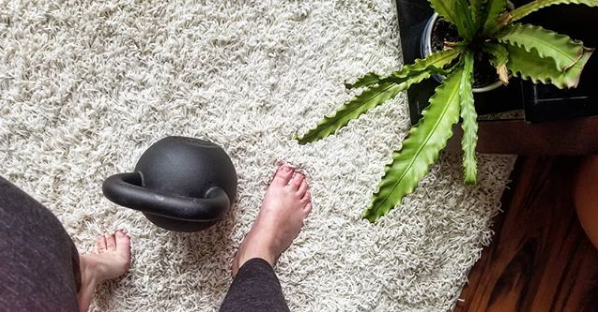How Movement Helps Your Personal Development Practice
So, you're sitting there, mid-February, having abandoned all notions of resolutions, thinking about the hike you took this weekend and the dinner you're cooking later, wondering why you didn't allow yourself some space for freedom sooner. When all of a sudden you hear chatter creeping up, wafting through the breeze like the smell of city trash in the summer: your coworkers are on their way to the break room, making one self-deprecating comment after another about how they've "failed" already, and they sit down to join you. You're having a tough time listening without
a) ripping your hair out or flipping a table
and/or
b) feeling pulled back into the diet culture soup.
But of course you don't want to do either of those things, and you can't just leave, because you've been trying to be friendlier at work. Why do you always find yourself in these situations?
If you struggle with setting boundaries or using your voice or asking for help, I invite you to consider this is a logical outcome of the world in which we live.
"No," is so often not actually taken to mean no, but, "maybe another time," or, "if you ask again or phrase this differently or try harder, maybe yes" (especially when there is power and privilege differential). We take this information in in bits and bite-sized pieces, eventually going with some version of, "fine, I'll just do it all alone and be by myself," a hand never raised for help that doesn't come. Distrust abounds, for good reasons; no need to gaslight yourself here.
The way out is to practice, sure, but I'm equally sure you already know that (or break room conversations and the like would not be nearly as sticky), so I'd like to consider a perhaps-missing piece: the way to practice is to first recognize environments in which it is safe to do so.
You may feel more comfortable testing new boundaries with a close friend or with your partner before you have hard conversations at work, or vice versa; where it is safe for you depends on your individual circumstances. This was a challenge for me personally for a very long time, and somewhere I still miss the mark in certain areas. There is no quick fix, one-way answer to determining what (re)establishing trust (in yourself and others) looks like. Better, I find, to determine what it feels like, so you can recognize when it's there (and when it's not) when deciding if and how to engage.
Doing a new thing feels scary, for sure, but beneath that fear, in that situation, with that person, on a regular basis, do you feel calm? Like you can breathe? Like your stomach is where it's supposed to be in your body? Do you feel warm? Held? Like the other shoe is firmly on the ground all or most of the time?
Quite honestly, I didn't fully learn the difference until I embraced slow movement: when I learned what it felt like to feel calm, able to inhale and exhale fully, to not have my stomach in knots somewhere near my throat, pulse pounding in my ears. Not that that needs to be *your* path, but an invitation to consider if you know what it feels like to be in your body, safely held, knowing what and who are yours.
_
[note: this experience can vary in accessibility, particularly if you have experienced trauma of any kind and/or dissociation. Also, the big Way Out is dismantling systems that make this so.]
_
And THAT, for so many shifts I've noticed in womxn I coach, is where things get juicy: when you realize that movement is so much more than movement, has so many more lessons than showing you how well you can adhere to someone else's plans and goals. Zooming out, a whole bunch of things you've been working on seem to have common themes. When you strip away the noise, you see what's really going on: you're coming home to yourself, reclaiming space and time and exactly who you are, that you may have forgotten in an effort to make her small.
It doesn't have to check a box or make you sweaty or question your entire existence (although it can, when or if that's your jam). It can be much more subtle and much more powerful than that:
☆ Movement can be a moment of peace, a break from the questions flung your way by coworkers and kids and companions.
☆ Movement can be a slice of life, a peek into yourself that isn't on display anywhere else.
☆ Movement can be a catalyst for change, a way to learn how to take up space and make a statement and feel justified in setting those boundaries you've had kicking around in the background for a while.
☆ Movement can be a period of pause, a time out from covering up all the things in your brain with to-do lists and tasks and overworking and overperforming.
☆ Movement can be a method of meditation, a series of repetitive cycles that give your thinking mind a break.
It all builds on itself, no matter the medium. You can carve out a new path for yourself, one step (or swing, or stroke, or session) at a time.
xoxo,
Steph




![Is This You? [[Last Call!]]](https://images.squarespace-cdn.com/content/v1/575ab1663c44d8a71ac717dd/1580137502641-XX7TTUDO54434JMCPDBO/something+magical.PNG)